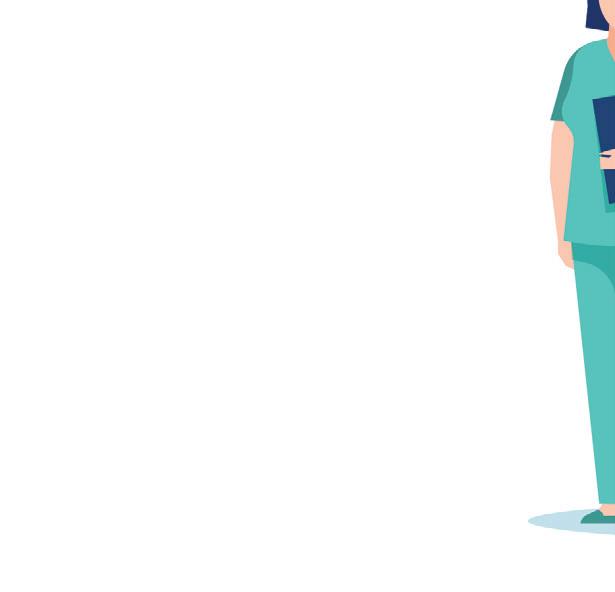
4 minute read
8 WAYS TO HELP EASE CHEMOTHERAPY TREATMENT. Infusion
Oncology/infusion nurses Bashkarnand Autar, RN, at left, and Doris Bazurto, RN, work with a patient at the Madeline Fiadini LoRe Foundation Infusion Center.
8
WAYS TO HELP EASE CHEMOTHERAPY TREATMENT
HOW TO FIND THE BEST CARE—AND TAKE CARE OF YOURSELF, TOO
RWJBarnabas Health and Jersey City Medical Center, together with Rutgers Cancer Institute of New Jersey—the state’s only NCI-Designated Comprehensive Cancer Center—provide close-to-home access to the latest treatment options. For more information, call 844.CANCERNJ or visit www.rwjbh.org/beatcancer.
Facing chemotherapy can be a daunting prospect, but there are ways to make the experience more manageable, according to infusion/ oncology nurses at the Madeline Fiadini LoRe Foundation Infusion Center at Jersey City Medical Center.
The Infusion Center, which opened last year, provides the latest in treatments, design and amenities. “We have a big space that can house everybody,” says infusion/oncology nurse Bashkarnand Autar, RN. Large-screen TVs and nature-inspired wall murals help create a relaxing experience.
The Infusion Center also houses a multidisciplinary staff of doctors, oncology/infusion nurses, nurse navigators, a social worker and other staff members.
“Treatment is easier and more cohesive when the patient sees the doctor, the case manager, the nurses, all in one place,” Autar says.
But it’s the expertise and compassion of the staff that are most helpful as patients navigate the physical and mental challenges of chemotherapy. Autar and his colleague, infusion/oncology nurse Doris Bazurto, RN, share the advice they give their patients:

1Get your body ready.
Eat well and rest as much as possible in the days or weeks leading up to your chemotherapy. The better shape you’re in when you begin treatment, the more the side effects will be minimized.
2Set up a support team.
“People need friends and family to come and support them through chemotherapy, at least for the initial treatments,” says Autar. A friend or family member can bring the patient to the Infusion Center, take them home, and help with shopping, cooking and laundry. “It will take a few treatments for patients to know how they’ll feel after each treatment and exactly what kind of help they’ll need,” Autar says.
3Consider a haircut before beginning treatment.
Unfortunately, hair loss from chemotherapy is a side effect that usually can’t be prevented. From a medical standpoint, the hair loss isn’t important, and it will grow back after chemotherapy stops. Still, it can be unsettling for both men and women.
That’s why Autar and Bazurto recommend that people cut their hair short before starting treatment. “With a shorter haircut, when the hair does fall out at least it won’t be shed in long strands,” Bazurto says. The Infusion Center can refer patients to a website that offers wigs, and doctors can write prescriptions so that insurance will help cover the cost. Free wigs are available for those who qualify.
4Keep yourself hydrated, both before and after treatment.
“We encourage patients to drink lots of water, which helps to cleanse the body,” says Bazurto. “If patients feel too nauseated to drink enough, we can give them IV fluids at the Infusion Center.”
5Get help for nausea.
Chemotherapy drugs are designed to be toxic to rapidly reproducing cells, like cancer cells. However, they can also disrupt other cells that reproduce rapidly, including those in the gastrointestinal tract. As a result, nausea and vomiting are common side effects.
“Even so, you have to keep eating because if you don’t then you become weak,” Autar says. “Try eating smaller meals to help with digestion.” The Infusion Center recommends nutritional supplements and can also refer patients to a nutritionist as needed.
“Doctors can provide anti-nausea medication in pill form that patients can take at home before they start their treatment and in the days right afterward,” says Bazurto.
6Stay active to fight fatigue.
“Chemotherapy can cause fatigue because it works on the bone marrow, so it makes some people anemic,” explains Autar. Anemia results from not having enough red blood cells to deliver adequate oxygen throughout the body.
“For fatigue, it’s usually recommended that people try to do some exercise. Even walking can be enough. Anything so that you don’t stay in bed too much,” says Autar. Physical therapy may also be an option.
7Don’t neglect your emotional health.
At the Infusion Center, staff members assess a patient’s physical, emotional and social status. That information is relayed to the oncology social worker, who sees patients and helps them sort through their feelings and circumstances.
“Some patients do become depressed,” says Bazurto. “Sometimes the social worker can see the patient in their infusion chair and make a referral for the appropriate support
needed.” Two nurse navigators also provide support.
8Talk to your doctors and nurses!
Oncology doctors and nurses have many more ways than those described here to help patients through chemotherapy treatment—but they can’t offer help unless you let them know how you’re feeling.
While most chemotherapy side effects are temporary, neuropathy—a tingling or numbness in the hands or feet caused by nerve damage—can become permanent if not addressed right away, so always let your medical team know if you experience it.
“The doctor will assess the patient,” Bazurto explains, “and depending on the severity of the neuropathy, it may be necessary to adjust the dosage of the chemotherapy, or even to take a break from treatment.”
Doris Bazurto, RN, and
Bashkarnand Autar, RN, provide expert care for chemotherapy patients.
JCMC CAN HELP
The Madeline Fiadini LoRe Foundation Infusion Center, which opened last year, expands Jersey City Medical Center’s delivery of multidisciplinary, comprehensive cancer care in Hudson County. For more information, call 855.571.3400 or visit www.rwjbh.org/hudsoncounty.










